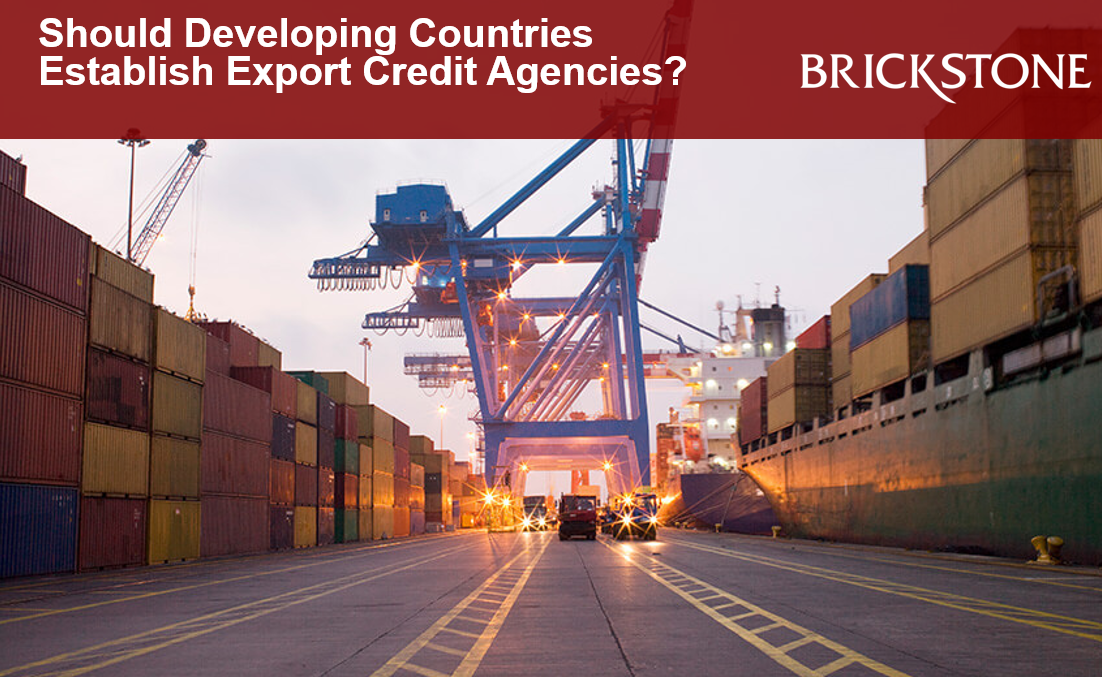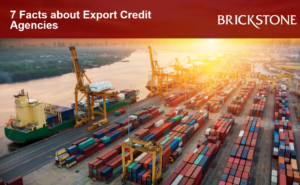Should Developing Countries Establish Export Credit Agencies?
Export credit agencies (ECA) are financial institutions that offer financing to domestic companies for international export operations and other activities. By using ECAs, exporters can sell on more liberal terms than cash in advance, and still have a high degree of certainty that they will get paid.
According to the World Bank, new data on export insurance and guarantees suggest that publicly backed export credit agencies have played a role to prevent a complete drying up of trade finance markets during the current financial crisis. Furthermore, given that export credit agencies are mainly located in advanced and emerging economies, the question arises whether developing countries that are not equipped with these agencies should establish their own agencies to support exporting firms and avoid trade finance shortages in times of crisis.
This article by Brickstone reviews some institutional reports and publications on the need for Export Credit Agencies in developing countries, highlighting key facts and insights.
Export Credit Agencies in Developing Countries
The results of recent trade finance surveys conducted, among others, by the World Bank and the IMF suggest that emerging markets have been impacted severely by the lack of available trade financing options during the financial crisis. Both bankers and the international community have since called upon state-backed ECAs to expand their operations to mitigate credit risk and keep trade finance markets in developing countries from drying up.
Most ECAs have been founded with the stated objective of promoting foreign trade and/or alleviating financial sector related constraints in the provision of the necessary financial products to domestic firms involved in foreign trade.
Finance is the lubricant of commerce. Without financing, in all of its varieties (i.e., short-term trade credit, letters of credit, medium- and long-term capital equipment loans, and project finance), most international opportunities would be difficult to capitalize upon.
Given the renewed interest in these institutions and the fact that such institutions have long been part of the financial sector landscape in many advanced and emerging countries with relatively large foreign trade sectors, the question arises whether less developed countries should follow suit and establish their own agencies to support exporting firms and to shield their economies against complete trade finance shortages in times of crisis.
A number of issues require attention when deciding whether a country should establish a specialized financial institution to finance exports as well as what shape, form and modus operandi it should have. Any decision to establish such a specialized financial institution to finance exports should be made only after a careful evaluation of its potential impact on both the financial and the real sector of the economy.
In addition, the choice of a sustainable business model is shown to be crucial. We argue that a sustainable business model involves a strong governance structure as well as the availability of a sufficiently large capital stock for the institution to be capable of acting independently and to have a strong enough operational footprint to achieve its objectives. These are two preconditions that are seldom met in low- income economies, which often suffer from sovereign debt problems, weak institutional capacity, poor governance practices and difficulties in applying the rule of law.
Export credit agencies are institutions that can – under the right circumstances, rules, and discipline – help alleviate market failures in the effective provision of export credits as well as insurance and guarantees. This is especially true in times of crisis. However, conditions for an ECA to be effective are demanding in terms of economic environment, institutional design, and governance structure. Such pre-requirements make ECAs more suitable for more mature economies than for low-income countries that are still often confronting many basic development challenges.
Read more here.






